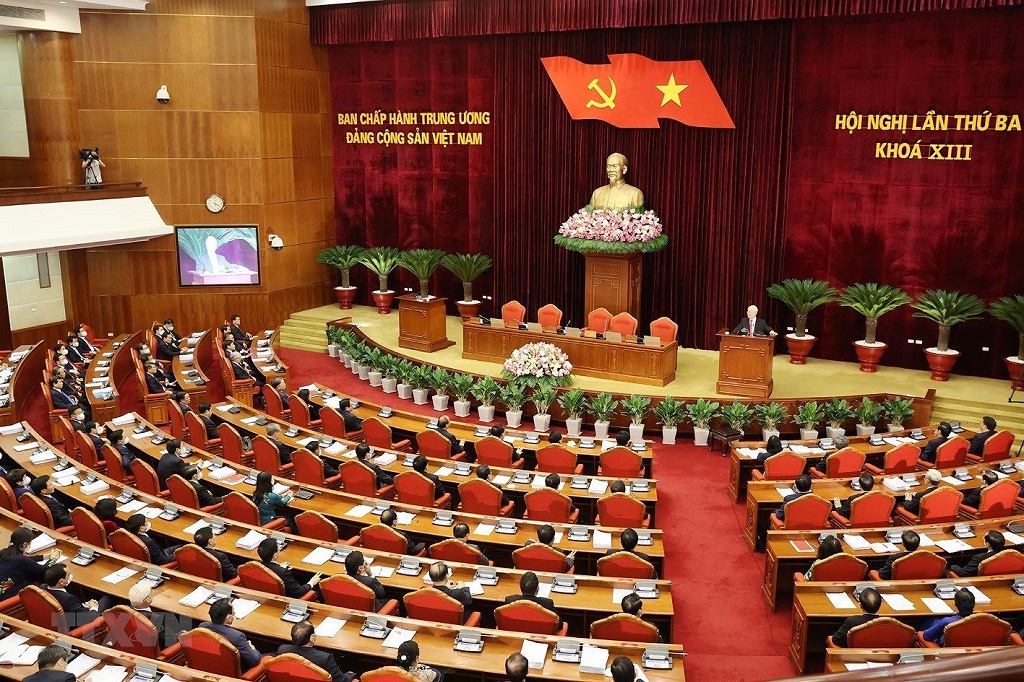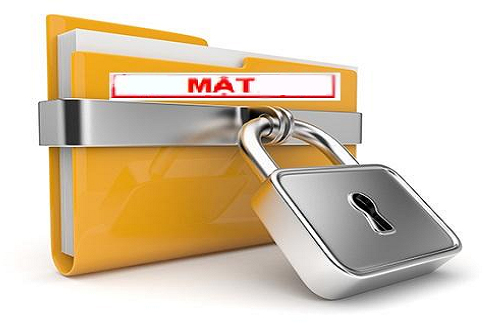09 prohibited acts in state secret protection in Vietnam
What is state secret protection? What are the prohibited acts in state secret protection in Vietnam? – Thuy Duong (Ninh Thuan)

09 prohibited acts in state secret protection in Vietnam (Internet image)
Regarding this issue, LawNet would like to answer as follows:
1. What is state secret protection?
According to Clause 2, Article 2 of the State Secrets Protection Law 2018, state secrets protection means employment of manpower, equipment and measures to protect and prevent the disclosure of state secrets by regulatory bodies, organizations and individuals.
|
State secret means undisclosed information carrying important contents which is specified by the head of a competent body or organization according to regulations of the State Secrets Protection Law 2018 and the divulgence or loss of which may bring harm to national interest. State secrets may be contained in documents, objects, locations, speeches, activities or other forms. (Clause 1, Article 2 of the State Secrets Protection Law 2018) |
2. 09 prohibited acts in state secret protection in Vietnam
According to Article 5 of the State Secrets Protection Law 2018, prohibited acts in state secret protection in Vietnam include:
(1) Divulgence, appropriation, selling and buying of state secrets; falsification and damage of state secret containers.
(2) Illegal collection, exchange, provision and transfer of state secrets; illegal copying, photographing, retention, transport, delivery, receipt, recall and destruction of state secret containers.
(3) Illegally taking state secret containers out of their storage.
(4) Exploitation or abuse of activities of state secrets protection or use of state secrets to conduct or conceal violations against regulations of laws, to commit violations of legitimate rights and interest or to obstruct operation of regulatory bodies, organizations or individuals.
(5) Creation or retention of a document containing state secrets in a computer or another device that has been or is being connected to the Internet, computer network or telecommunications network, excluding cases of state secrets retention regulated by cryptography laws.
(6) Uploading state secrets onto communications or telecommunications media against regulations of cryptography laws.
(7) Using a computer or another device that has been used to create, retain or exchange a state secret for another purpose before such state secret is removed.
(8) Use of a device capable of receiving and/or transmitting signals, recording or filming during a conference, seminar or meeting containing state secrets in any shape or form without permission from a competent person.
(9) Upload and distribution of state secrets on mass media, the Internet, computer network or telecommunications network.
3. Principles of state secrets protection in Vietnam
Principles of state secrets protection specified in Article 3 of the State Secrets Protection Law 2018, include:
- State secrets shall be protected under the leadership of the Communist Party of Vietnam and unified state management; contributing to the construction and protection of the Fatherland, socio-economic development and international integration of the country; protecting national interest and legitimate rights and interest of regulatory bodies, organizations and individuals.
- State secrets protection is the responsibility of all regulatory bodies, organizations and individuals.
- State secrets shall be managed and used for the appropriate purposes, by authorized entities and according to the procedures regulated by law.
- Active prevention; timely detection, prevention and strict handling of violations against regulations on state secrets protection.
- Time limit for state secrets protection shall abide by the regulations of this Law, ensuring citizens’ right to access information as regulated by law.
4. How are state secrets classified in Vietnam?
Based on the importance of their contents and scale of damage in case of divulgence or loss, state secrets are classified into the following 03 levels:
- State secrets classified as “top secret” are those related to politics, national defense and security, cryptography and foreign affairs whose divulgence or loss can cause exceptionally grave damage to national interest;
- State secrets classified as “secret” are those related to politics, national defense and security, cryptography, constitution formulation, legislation, judiciary, foreign affairs, economy, resources and the environment, science and technology, education and training, culture, sport, information and communications, healthcare, population, labor and social affairs, organizational structure and official affairs, inspection, supervision, handling of violations, settlement of complaints and denunciations, anti-corruption and state audit whose divulgence or loss can cause extremely grave damage to national interest;
- State secrets classified as “confidential” are those related to politics, national defense and security, cryptography, constitution formulation, legislation, judiciary, foreign affairs, economy, resources and the environment, science and technology, education and training, culture, sports, information and communications, healthcare, population, labor and social affairs, organizational structure and official affairs, inspection, supervision, handling of violations, settlement of complaints and denunciation, anti-corruption and state audit whose divulgence or loss can cause grave damage to national interest.
(Article 8 State Secrets Protection Law 2018)
- Key word:
- state secret protection
- state secret
- in Vietnam
- Penalties for fraudulent activities on e-commerce platforms in Vietnam
- Guidance on issuing driver licenses for individuals with expired driver licenses in Vietnam
- Cases of verification of driver licenses in Vietnam according to Circular 35
- Proposal on night shift allowance policies and meal support for healthcare employees in Vietnam
- What is Pi Network? Is Pi Network legal in Vietnam?
- Proposal to lower health insurance contribution rates to alleviate economic burden on citizens in Vietnam
-

- Duration of state secret protection for inspection ...
- 14:00, 05/02/2025
-

- List of State secrets of the Vietnam Communist ...
- 17:00, 21/11/2024
-

- List of State secrets of the Vietnam Communist ...
- 10:36, 20/11/2024
-

- Emergency response and search and rescue organizations ...
- 10:29, 11/09/2024
-

- Handling of the acceptance results of ministerial ...
- 09:30, 11/09/2024
-

- Guidelines for maintenance and renovation of villas ...
- 14:30, 21/02/2025
-

- Guidelines for maintenance and renovation of villas ...
- 14:30, 21/02/2025
-

- Procedures for high school admission in Vietnam
- 14:25, 21/02/2025
-

- Resolution 190: Principles for addressing certain ...
- 11:30, 21/02/2025
-

- Guidance on identifying cases of inaccurate or ...
- 11:00, 21/02/2025
 (1).png)
 Article table of contents
Article table of contents
